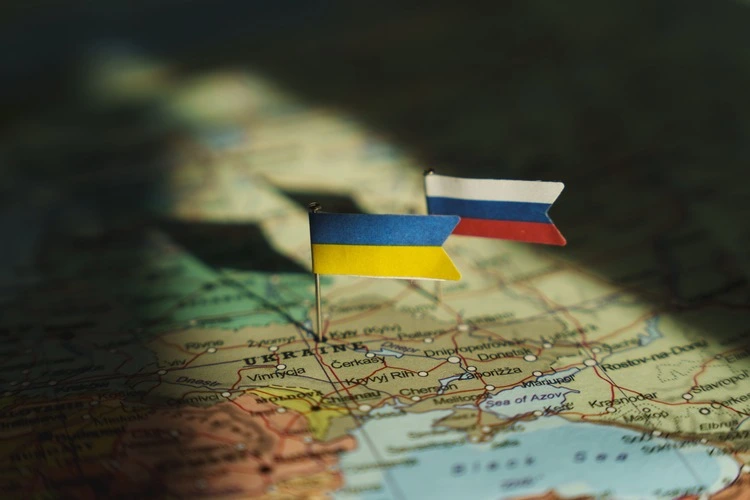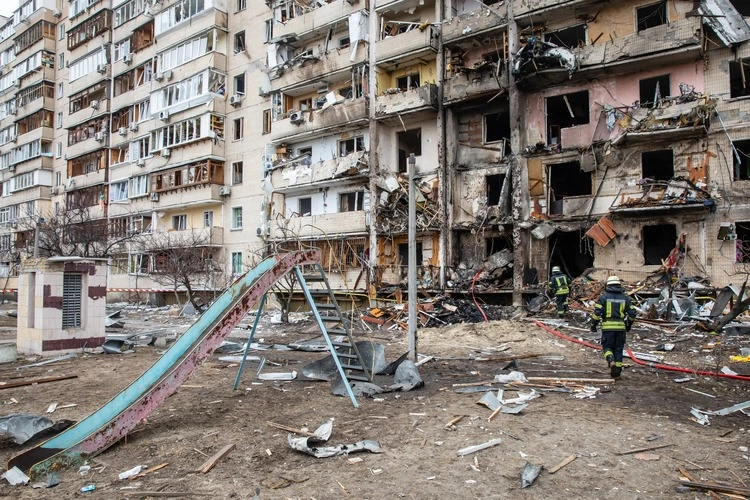

Geopolitical Hotspot
Tim Marshall on possible peace talks over Russia’s invasion of Ukraine
You can lead a bear to the negotiating table, but you can’t make it sign… as the adage doesn’t quite say. Russia may agree to peace talks this year but won’t sign anything not hugely to its advantage. US president Donald Trump said he’d end the war in 24 hours – 24 days would be ambitious.
President Putin thinks Russia is winning and so has no interest in compromise. Instead, he’ll stand by maximalist demands, which are about much more than the war in Ukraine. He’ll insist on the retention of conquered territory, a neutral Ukraine and de facto recognition of a Russian ‘sphere of influence’. If that happens, it will be a betrayal of Ukraine and a devastating defeat for the Western democracies. It will reinforce Putin’s belief that the West is in terminal decline and ready to be dominated by authoritarian powers.
Check out our related reads:
Putin tells Russians they’re in a civilisational war and that the NATO powers wish to dismember Russia. As long ago as 2014, he was using the bear as an allegory: ‘Maybe it would be better for our bear to sit quiet, rather than chasing around the forest after piglets… Maybe they will leave it in peace. They will not. Because they will always try to put him on a chain, and as soon as they succeed in doing so. they tear out his fangs and his claws.’ ‘They’ is NATO, the ‘piglets’ are Ukrainians.
Russia is, and has always been, an empire. Putin will never accept that Ukraine is an independent country. He intends to bring it back under the sort of control Moscow enjoys with the non-Slavic republics in the Russian Federation. Since the end of the Cold War, successive Western leaders appear not to have understood this and dealt with Russia as they would like it to be, not as it is – a repressive, rapacious imperial power.
Viewed from Moscow, the world is approaching a post-American era, and Trump will only hasten its arrival. That doesn’t mean Putin won’t talk with Trump and possibly the Ukrainians, he has little to lose in trying to appear pragmatic, but that’s different from needing to compromise. Trump has appointed Keith Kellogg as his special envoy to Russia and Ukraine. Kellogg is co- author of the new administration’s plan for ending the war: if Ukraine won’t negotiate, the USA will stop supplying it weapons; if Russia won’t negotiate, the USA will increase supplies.
Subscribe to Tim Marshall’s Substack here: https://substack.com/@itwitius
However, militarily, Russia is now on the front foot and advancing, albeit slowly. It may be running out of money, but Ukraine is running out of territory, and people.
That’s why, unlike Putin, Ukraine’s president Zelensky has signalled he is willing to consider compromises. He’s suggested that some land might be relinquished in return for a date for NATO membership and the status of other disputed territory could be frozen pending future negotiations. It’s clear he feels that victory for Ukraine is impossible.

We may now see a flurry of diplomatic activity as Trump seeks to bring the two sides together, but it’s impossible to confidently predict what then happens. It’s in Putin’s interests to appear to engage, in the hope that Trump pulls the rug from beneath Ukraine. Conversely, if Trump feels the Russians are openly playing hardball, he could increase the weapons supply, although based on his statements, that’s less likely.
Another scenario sees Moscow accepting a deal that, although falling short of its maximalist demands, is favourable to Russia, but then restarting the war a few months later after the USA’s attention has turned to the Indo-Pacific.
The Europeans are desperate for a deal because if Trump removes US support, they’ll have a stark choice: watch Ukraine lose and wait for Russia’s next move, or try to
fill the gap the Americans leave – something they’re not prepared for militarily, economically, or politically.
It’s possible Poland may emerge as the European leader on the issue. French politics is an incoherent mess and the German election in February is unlikely to see a strong government emerge. It may fall to Poland’s Donald Tusk, and his foreign secretary, Radoslaw Sikorski, to pull together a ’coalition of the willing’ to try to get Ukraine into a position where it can negotiate from a position of strength. It would be an extremely hard sell.
The Russians have several proverbs featuring bears. One is said to be that when you dance with a bear ‘it’s not you who decides when the dance is over, it’s the bear’. Barring an economic and then military collapse, the Russians will not leave the field empty handed.




